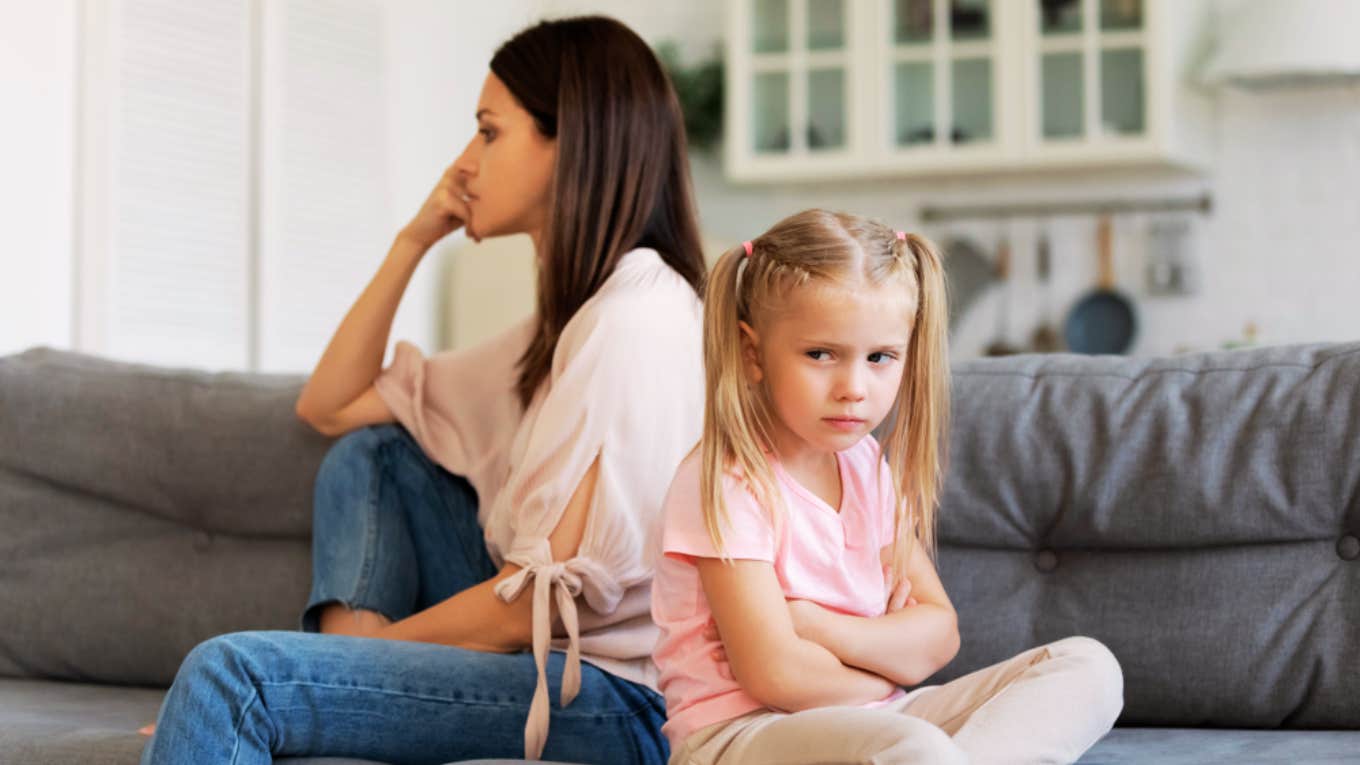5 Signs Your Parents Frequently Gaslighted You As A Kid — And It's Still Happening Today
Sometimes it doesn't stop, even going into adulthood.
 fizkes / Shutterstock
fizkes / Shutterstock Growing up, some children may be gaslighted by their parents without realizing it in various ways, intentionally or unintentionally. Gaslighting occurs when someone manipulates another person into doubting their thoughts, feelings, or perceptions, causing them to question their sanity or reality.
Since children are just learning how to think for themselves, they can easily fall victim to gaslighting, specifically by their parents, without even realizing it.
Here are 5 signs your parents frequently gaslighted you as a child and are still doing it today:
Lauren Consul, LMFT, CST, JD, a relationship therapist, revealed five different ways parents often gaslight their children without them even realizing it well into their adulthood.
1. They dismiss your subjective experience
If you have a specific and particularly traumatic memory from your childhood, parents who often engage in gaslighting may deny that the experience even happened. “If you’re talking about something painful from your childhood, and they go, ‘That wasn’t a big deal’ or ‘That’s not what happened,’” Consul said.
Even if a parent is aware of something unsettling occurring in their child’s upbringing, they may attempt to manipulate their memory, claiming that they were only a child and do not remember it correctly. They will likely do this if they were the cause of the traumatic event in the first place to avoid accountability.
2. They play the victim
If a child sets a healthy boundary with a parent, even as an adult, the parent may act as if they are facing cruel treatment from their child.
Consul shared that a parent who is attempting to gaslight their child may say phrases such as, “I guess I’m just the worst parent ever,” and “I’ll just leave, and you’ll never have to deal with me again.” Parents who gaslight their children and portray themselves as victims may do so as a means of maintaining power, avoiding accountability, or coping with their own insecurities.
3. They try to compete with you
As a parent, when your child accomplishes or tackles something in life that makes them proud, it should also give you a sense of pride and joy. However, some parents who gaslight their children may feel the opposite and feel the need to one-up their child with their own successes.
 Photo: Yuganov Konstantin / Shutterstock
Photo: Yuganov Konstantin / Shutterstock
The same can be said about children who open up about their struggles, and their parents battle with them by claiming that their pain is insignificant compared to their own. “You talk about something difficult you’re going through, and they say, ‘Well, that’s nothing compared to what I went through,’ and they’ll launch into their own experience rather than hearing you,” Consul explained.
4. They put words in your mouth
An example is when parents assume what their child is thinking or feeling and then vocalize it as if it were true, even if it's not. “They’ll say, ‘You’re not angry, you’re just tired, and you need a nap,’ or ‘That’s not something that you’ve ever actually wanted to do,’ even though it is,” Consul said.
By projecting their own assumptions onto the child and stating them as facts, the parent is putting words in the child's mouth and potentially influencing how the child perceives their own emotions. It distorts the child's reality and undermines their ability to trust their own thoughts and feelings.
5. They don’t get excited for you
Normally when a child graduates school or scores a goal at their soccer game, their parents are beaming with pride and happiness for them. However, parents who gaslight their children may react differently to their accomplishments, even when they are grown up.
“You share about a promotion or a trip you’re taking, and instead of responding enthusiastically, they say, ‘Why would you want to go there?’ or ‘Well, that doesn’t sound like a very good idea,’” Consul explained.
 Photo: fizkes / Shutterstock
Photo: fizkes / Shutterstock
Instead of making their children doubt themselves, parents should be supporting them. Even if their goals seem as if they may be difficult to reach, it is a parent’s job to encourage and uplift their children to help them get there.
Gaslighting can have serious effects on a child’s emotional and mental health, even into adulthood.
They may have difficulty trusting others and blame themselves for things that are out of their control.
If you have experienced parental gaslighting, the first step toward healing is always recognizing and understanding the behavior. Seek support from friends and other family members whom you trust, consider professional help, and most importantly, set boundaries with your parents.
Megan Quinn is a writer at YourTango who covers entertainment and news, self, love, and relationships.

